On September 23, at the NVIDIA AI Day Ho Chi Minh City event, experts shared initiatives that contribute to building and perfecting a sovereign AI platform for Vietnam.
NVIDIA AI Day Ho Chi Minh City is part of a series of large-scale events organized by NVIDIA in many cities around the world , allowing attendees to experience the latest AI technologies, connect and share strategies to bring AI from theory to practice.
After Ho Chi Minh City, the event will be held in Tokyo, Sydney and Seoul.
Building a Sovereign AI Platform
The Sizing the Prize (PwC) report shows that AI could contribute $15.7 trillion to global GDP by 2030. According to the WIN World AI Index 2025, Vietnam is currently ranked 6th out of 40 countries, scoring 59.2 points on a 100-point scale, in terms of AI readiness.
AI is identified as a key field, forecast to contribute about 80 billion USD - equivalent to 12% of GDP to Vietnam by 2030 if widely applied (according to Google).
It is expected that by the end of 2025, Vietnam will announce an updated National AI Strategy along with its first AI Law.
At the special discussion session with the topic "Building Sovereign AI for Vietnam: Vision, Capacity and Opportunities," Mr. Vo Xuan Hoai - Deputy Director of the National Innovation Center (NIC), Mr. Le Hong Minh - Chairman of VNG and Mr. Pham Minh Tuan - Deputy General Director of FPT and General Director of FPT Software shared and analyzed strategies that can help Vietnam strengthen its technology infrastructure, develop an open AI ecosystem, pioneer innovation and build a sovereign, sustainable digital economy.
Specifically, building high-performance cloud computing infrastructure, developing standardized open datasets, building an AI startup ecosystem, cultivating AI talent, and perfecting policies are top priorities to promote Vietnam's sovereign AI.
"The Government is focusing on building a Vietnamese data set to serve AI research and development. In addition, developing a team of AI talent is the most important priority, which needs to be implemented immediately and effectively with the goal of having more than 50,000 engineers in the coming years; at the same time, the Government needs to issue policies that provide comprehensive support for businesses, startups and the human resource community, thereby forming an AI startup ecosystem within the next 5 years," said Mr. Vo Xuan Hoai.
Currently, promoting the development of artificial intelligence (AI) is identified as one of the key tasks of the Party and Government, demonstrated through the National Strategy on AI research, development and application to 2030, with the goal of making Vietnam a leading center for innovation and AI application deployment in the ASEAN region.
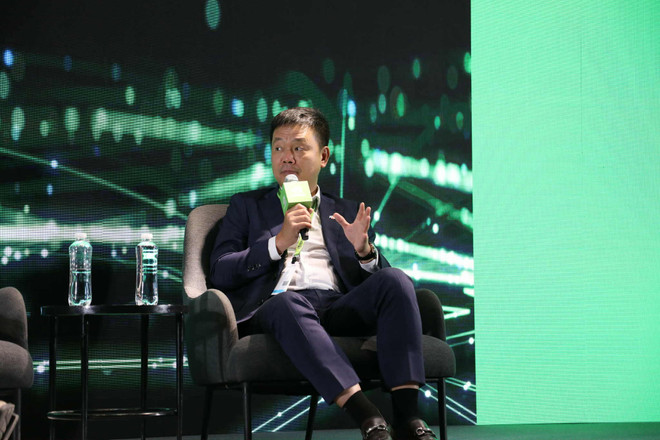
Mr. Pham Minh Tuan - Deputy General Director of FPT and General Director of FPT Software, emphasized that AI, especially sovereign AI, will be an extremely important factor to push Vietnam further, helping the country catch up with developed countries. "With FPT's experience in the global market, we believe that Vietnam has two distinct advantages: speed and scale. And I believe that AI will greatly support Vietnam in maintaining these advantages, not only serving Vietnam, but also contributing to the global market," Mr. Tuan shared.
Mr. Le Hong Minh - Chairman of VNG Corporation, said: "Sovereign AI must be able to build real AI applications and business models with distinct values, in the context that Vietnam's investment capital is still very small compared to the world. Besides, we still lack a team of AI research experts and the accumulation of core technology platforms. To solve these two problems, Vietnamese technology enterprises need to focus on developing and perfecting products and specific business opportunities. Users cannot be 'forced' to use AI, but AI must be naturally integrated into the experience."
Need to invest heavily in core AI capabilities
For AI, deployment speed plays a key role. Mr. Le Hong Minh said that VNG successfully commercialized AI Cloud within 6 months, 20% of Zalo users are currently using AI features after 2 years of testing. In addition, VNG is always looking for opportunities to cooperate with the Government, universities, researchers and startups to develop applications of high practical value.
"AI today is like the Internet in 1995-1996: there are many doubts and uncertainties. Developers need to stay excited about the possibilities that technology brings, and not take AI for granted. Learn, boldly explore, try and fail, and stick to the revenue engine from the beginning. Unlike Silicon Valley, where startups can raise capital even without a product, in Vietnam, you have to both explore and find a way to survive," Mr. Le Hong Minh emphasized.
In addition to the orientation of developing open-source LLM, Mr. Le Hong Minh said that VNG is still investing heavily in LLM training from scratch, aiming for the goal of AI mastered by Vietnamese people to be able to integrate into global trends.
Mr. Pham Minh Tuan - Deputy General Director of FPT, shared that everyone in the world is talking about AI, this is not a game for just a few countries, but for everyone. Vietnam has the aspiration to become an AI country, betting its future on AI. But to achieve big goals, we cannot go alone. According to Mr. Tuan, that is the reason why FPT has pioneered the establishment of the AI Alliance in Vietnam, bringing together more than 20 organizations from universities, research institutes and technology enterprises.
"We need to build values for Vietnam first, and then reach out to the world. For example, we decided to develop OLA LLM - a language model specifically designed for Vietnamese people and culture. At the same time, we also announced a grand prize worth 1 million USD to encourage innovation in the field of AI."
Agreeing with Mr. Le Hong Minh, Mr. Tuan believes that speed is the decisive factor. Instead of focusing all resources on developing general language models (LLM), we should focus on creating smaller models for specialized problems in each industry. This approach helps bring fast, high-quality results, and is also suitable for Vietnam's startup culture - when we have potential human resources, supportive policies from the Government, and strong demand for AI applications.
"I believe the right path is to develop small language models (SLMs). Because we have many culturally specific problems, problems that only appear in Vietnam or Asia, but are not big problems in the West. We should start from these problems," Mr. Tuan affirmed./.
Source: https://www.vietnamplus.vn/chuyen-gia-hien-ke-giai-phap-xay-dung-ai-co-chu-quyen-cho-viet-nam-post1063543.vnp






![[Photo] Cutting hills to make way for people to travel on route 14E that suffered landslides](https://vphoto.vietnam.vn/thumb/1200x675/vietnam/resource/IMAGE/2025/11/08/1762599969318_ndo_br_thiet-ke-chua-co-ten-2025-11-08t154639923-png.webp)

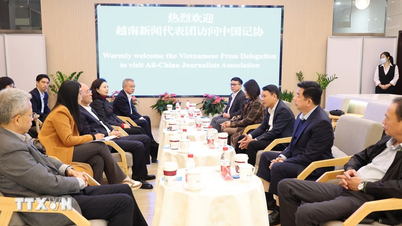
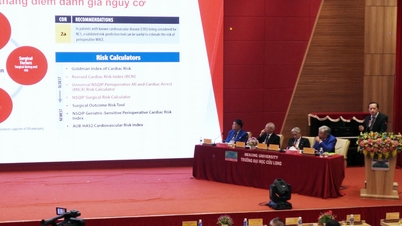

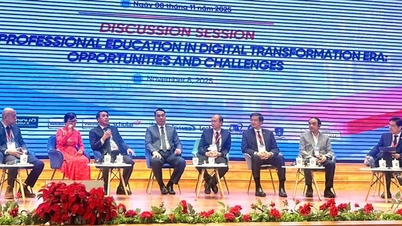



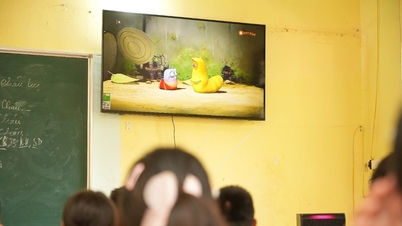






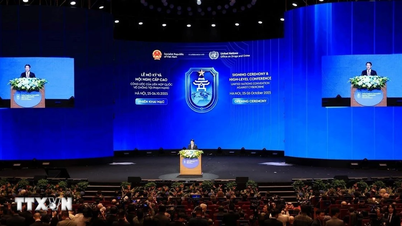









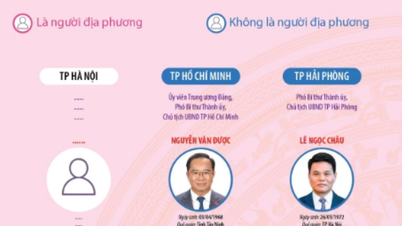











![[Video] Hue Monuments reopen to welcome visitors](https://vphoto.vietnam.vn/thumb/402x226/vietnam/resource/IMAGE/2025/11/05/1762301089171_dung01-05-43-09still013-jpg.webp)












































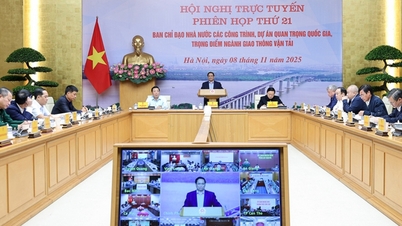




















Comment (0)